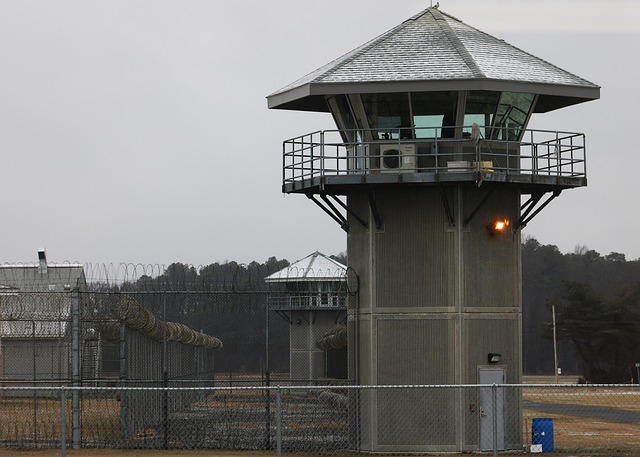DUI laws vary by jurisdiction and can have severe consequences, especially for non-citizens with immigration concerns. While drivers are typically focused on during DUI incidents, pedestrians also have specific legal rights and protections, including compensation for damages and preserving evidence. For immigrants, a DUI may lead to deportation or visa denials due to its view as a criminal offense by USCIS. Protecting pedestrians' rights in such incidents is crucial, with prompt legal counsel essential to safeguard immigration status and citizenship pursuits. Knowledge of rights and defense strategies is vital for immigrant drivers facing charges, particularly regarding pedestrians' rights in DUI incidents.
“In the intricate dance of immigration laws and DUI incidents, every step carries significant consequences. This article navigates the complex landscape where a driver’s right to stay can hang in the balance due to alcohol-related offenses. We explore the impact on immigrants, from understanding stringent DUI laws to examining the rights of pedestrians involved in such incidents. Delve into the legal repercussions, visa implications, and defense strategies, especially tailored for immigrant drivers facing charges. Remember that, in this symphony of regulations, every note matters.”
- Understanding DUI Laws and Their Impact on Immigration Status
- Rights of Pedestrians Involved in DUI Incidents
- Legal Consequences for Immigrants in DUI-Related Cases
- Visa Implications and Denial Due to DUI Convictions
- Defense Strategies for Immigrant Drivers Facing DUI Charges
- Long-Term Effects on Residency and Citizenship Opportunities
Understanding DUI Laws and Their Impact on Immigration Status

DUI laws vary across jurisdictions, but they are designed to deter and penalize individuals who operate vehicles while impaired. The consequences of a DUI can be severe, especially for non-citizens facing immigration issues. When an individual is involved in a DUI incident, it’s crucial to understand how these laws interact with their immigration status. For instance, a conviction could lead to license suspension or revocation, which directly impacts the ability to drive legally and maintain employment.
Moreover, for immigrants, a DUI charge might trigger discussions about visa revocation or denial of future applications. Pedestrians’ rights in DUI incidents are also significant; while the focus is often on drivers, pedestrians can face harm or legal repercussions as well. Therefore, those facing immigration issues should seek legal advice promptly to navigate these complex intersections of law and ensure their rights are protected throughout the process.
Rights of Pedestrians Involved in DUI Incidents

In the event of a DUI incident, pedestrians involved have specific rights and protections under the law. Unlike drivers, pedestrians are not suspected of intoxication or impaired judgment; therefore, they are entitled to certain legal safeguards. If a pedestrian is injured due to a driver’s intoxicated state, they can seek compensation for their damages, including medical expenses and pain and suffering. This right allows them to hold the at-fault driver accountable for their actions.
Pedestrians’ rights in DUI incidents also extend to the preservation of evidence and the ability to cooperate with law enforcement without fear of adverse consequences. They can provide statements, participate in investigations, and even assist in identifying the driver responsible. These measures help strengthen the case against the intoxicated driver, ensuring that justice is served for all parties involved.
Legal Consequences for Immigrants in DUI-Related Cases

For immigrants, the legal consequences of a DUI (Driving Under the Influence) can be significantly more severe due to their status. In addition to potential jail time and hefty fines, immigration authorities may view a DUI as a serious criminal offense, leading to increased scrutiny during visa applications or renewal processes. Even a single conviction could result in deportation proceedings, especially if it violates the terms of their legal residency.
Pedestrians’ rights are also important considerations in DUI incidents involving immigrants. If an immigrant driver causes harm to pedestrians while under the influence, they may face additional charges and civil liabilities. These cases can further complicate immigration matters, as courts may consider them when evaluating an individual’s character and fitness for continued or renewed residency status.
Visa Implications and Denial Due to DUI Convictions

DUI convictions can have severe implications for individuals seeking immigration benefits or entering the country through visa applications. When it comes to visas, a DUI charge is treated as a significant disqualifier. This is because it reflects poorly on an individual’s character and judgment, which are key factors in visa approvals. The U.S. Citizenship and Immigration Services (USCIS) considers DUI as evidence of poor moral character, especially if the incident involves property damage or injuries to pedestrians.
In cases where a pedestrian’s rights have been violated due to a DUI incident, the consequences can be even more dire. If a driver is found liable for harm caused to pedestrians, it may lead to visa denials or revocations. This is particularly true for non-citizen residents who are vulnerable to deportation proceedings if their visa status is based on employment or family ties. Therefore, individuals facing DUI charges should prioritize seeking legal counsel to explore options that protect their immigration rights, especially considering the potential impact on their ability to remain in the country and pursue citizenship.
Defense Strategies for Immigrant Drivers Facing DUI Charges

When immigrant drivers face DUI (driving under the influence) charges, understanding their rights and available defense strategies is crucial. One significant aspect to consider is the potential impact on their immigration status. In such cases, prioritizing knowledge of both driving laws and immigration regulations is essential.
Immigrant drivers can employ several defense strategies. These may include challenging the admissibility of evidence, particularly breath or blood test results, by arguing procedural irregularities or lack of proper Miranda warnings. Additionally, they can highlight any disparities in how similar cases have been handled in the past, especially regarding pedestrians’ rights in DUI incidents, to strengthen their defense.
Long-Term Effects on Residency and Citizenship Opportunities

A DUI conviction can have significant long-term effects on an individual’s immigration status and residency opportunities, especially for those seeking citizenship. In many cases, a drunk driving offense is considered a serious criminal record item that can impact visa applications and permanent resident (green card) eligibility. The consequences may include lengthy delays or even denial of visa petitions, as authorities scrutinize the applicant’s character and moral fitness. This is particularly relevant when considering the pedestrians rights in DUI incidents, where vulnerable road users are at risk due to impaired drivers.
For those already holding a green card, a DUI can lead to deportation proceedings if it constitutes a removable offense under immigration laws. The removal of an individual from the country may result in a permanent bar to re-entering the United States, effectively ending any hopes of citizenship. Additionally, even after completing a sentence and regaining a clean driving record, the stigma associated with a DUI conviction could hinder future residency applications and create challenges in rebuilding one’s immigration profile.
In conclusion, understanding the intricate relationship between DUI laws and immigration status is paramount, especially considering the significant visa implications and long-term residency consequences. The article has explored various aspects, from the legal rights of pedestrians involved in such incidents to defense strategies for immigrant drivers. It highlights the potential for severe immigration repercussions, including denial of visas due to DUI convictions, which can significantly impact an individual’s future. By shedding light on these issues, we aim to empower immigrants and promote awareness about their rights, enabling them to navigate legal complexities with confidence and resilience.






